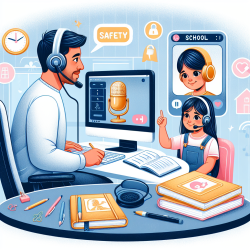Attention-Deficit/Hyperactivity Disorder (ADHD) is a common childhood psychiatric disorder that significantly impacts academic, social, and family life. According to the "Clinical Practice Guidelines for the Assessment and Management of Attention-Deficit/Hyperactivity Disorder," published in the Indian Journal of Psychiatry, effective management of ADHD requires a comprehensive approach that includes both assessment and tailored interventions. As a practitioner, integrating these guidelines into your practice can enhance your ability to support students with ADHD effectively.
Key Components of Comprehensive ADHD Assessment
A thorough assessment is crucial for accurate diagnosis and effective management. Here are some key components:
- Detailed History: Gather comprehensive background information, including family history, developmental milestones, and previous medical records.
- Multi-Informant Reports: Obtain information from parents, teachers, and other relevant sources to get a well-rounded view of the child's behavior across different settings.
- Physical and Mental State Examination: Conduct detailed physical and mental evaluations to rule out other conditions that might mimic ADHD symptoms.
Implementing Evidence-Based Management Strategies
Based on the guidelines, here are some strategies to consider:
Environmental Modifications
Creating a structured environment can significantly help students with ADHD:
- Routine and Structure: Establish regular routines for daily activities, both at home and school.
- Minimize Distractions: Arrange study spaces to be free from distractions, using visual cues and reminders to keep the child on task.
- Breaks and Physical Activity: Incorporate short breaks and physical activities to help manage hyperactivity and maintain focus.
Parent and Teacher Training
Training programs for parents and teachers can be incredibly beneficial:
- Effective Communication: Teach clear and concise communication methods, focusing on positive reinforcement.
- Behavioral Strategies: Implement behavioral management techniques such as token economies and response costs.
- Consistency: Ensure consistency in rules and expectations across different environments and caregivers.
Pharmacological Interventions
Medication can be an effective part of a comprehensive treatment plan:
- Stimulants: Medications like methylphenidate have shown significant efficacy in managing core ADHD symptoms.
- Non-Stimulants: Options like atomoxetine can be considered, especially in cases where stimulants are not well-tolerated.
Encouraging Further Research
Staying updated with the latest research and continuously refining your approach is essential. The guidelines provide a robust framework, but individual needs may vary. Engaging in further research and professional development can help you stay at the forefront of ADHD management.
To read the original research paper, please follow this link: Clinical Practice Guidelines for the Assessment and Management of Attention-Deficit/Hyperactivity Disorder.










